No products in the cart.
Return To ShopWhey vs. Soy Protein in Pakistan: Pros & Cons Explained
As fitness awareness grows in Pakistan, so does the demand for quality protein supplements. Whether you’re aiming for muscle gain, weight loss, or general wellness, choosing the right protein source is key. Two of the most common options are whey protein and soy protein but which one is better for Pakistani users?
In this expert comparison, we break down the pros and cons of whey protein vs. soy protein for Pakistani consumers. With a focus on nutrition, availability, halal certification, affordability, and local dietary preferences, this guide will help you make an informed decision aligned with your fitness and health goals.
Ready to choose the right protein for your goals? Compare whey and soy in Pakistan and pick the one that fuels your fitness journey.

Nutritional Comparison: Whey vs. Soy Protein
| Feature | Whey Protein | Soy Protein |
| Source | Dairy (milk-based) | Plant (soybeans) |
| Protein per 30g serving | ~24g | ~23g |
| Amino Acid Profile | Complete; high in BCAAs | Complete; lower BCAA concentration |
| Digestibility | High (PDCAAS: 1.0) | High (PDCAAS: 1.0) |
| Absorption Speed | Fast | Moderate |
Whey protein is rapidly absorbed and rich in branched-chain amino acids (BCAAs) like leucine, which plays a vital role in muscle protein synthesis. In contrast, soy protein also offers a complete amino acid profile but may have slightly less anabolic (muscle-building) potential.
Health Benefits
Whey Protein Benefits
- Muscle Growth: Backed by studies, whey is ideal for post-workout recovery and lean muscle mass.
- Immune Support: Contains immunoglobulins and lactoferrin.
- Weight Management: Increases satiety and fat loss when combined with exercise.
Soy Protein Benefits
- Heart Health: May help reduce LDL cholesterol (NIH, 2022).
- Hormonal Balance: Contains phytoestrogens, but myths about feminization are debunked by research (Harvard Health, 2020).
- Ideal for Vegans & Lactose Intolerant: 100% plant-based and dairy-free.
Whey Protein Price in Pakistan vs. Soy Protein:
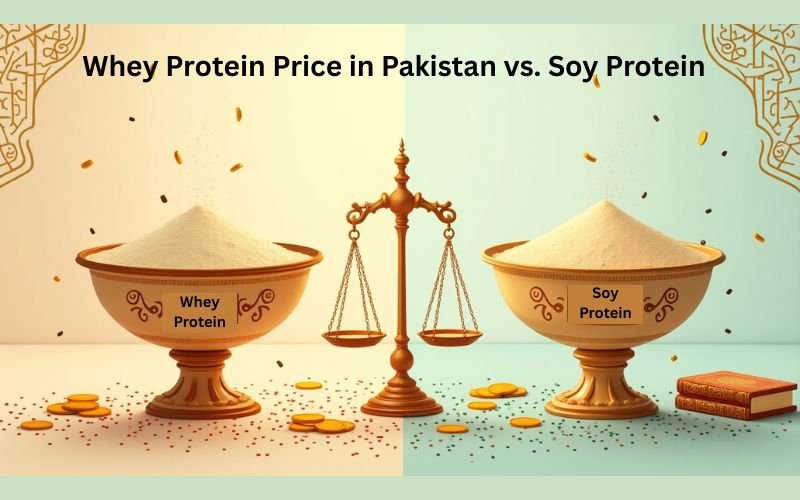
In Pakistan, whey protein tends to be more widely available but also more expensive, especially for premium isolates and hydrolysates. As of 2025, the whey protein price in Pakistan for 1kg of concentrate ranges from PKR 6,000 to 8,500, while whey isolate can cost between PKR 8,500 to 11,500, depending on the brand and purity level.
In contrast, soy protein is generally more affordable and caters to vegan or lactose-intolerant users. A 1kg pack of soy protein typically ranges from PKR 4,500 to 7,500. However, soy protein options are less abundant in the Pakistani market, with fewer local retailers offering halal-certified variants. For budget-conscious users, soy protein is a cost-effective alternative, while those focused on muscle gain and faster recovery may prefer the performance edge of whey protein, despite the higher whey protein price in Pakistan.
Drawbacks & Side Effects
Whey Protein Disadvantages
- Lactose Sensitivity: May cause bloating, gas, or diarrhea in lactose-intolerant individuals (unless using isolate/hydrolysate).
- Allergic Reactions: Rare but possible for those with milk protein allergies.
Soy Protein Disadvantages
- Hormonal Myths: Overblown concerns about estrogen effects in men. Scientific consensus shows no adverse hormonal impact at normal intake levels.
- Anti-Nutrients: Contains phytates which may hinder mineral absorption, though not a concern with moderate use.
Suitability for Pakistani Users
1. Availability in Pakistan
- Whey protein is widely available through both local and imported brands (e.g., Optimum Nutrition, MyProtein, GAT, and Applied Nutrition).
- Soy protein is less common but gaining ground due to rising vegan trends.
2. Halal Certification
- Always verify halal logos from reputable certification bodies like SANHA, IFANCA, or JAKIM.
- Leading halal whey brands in Pakistan: Applied Nutrition, Nutrabay Pure, QNT, etc.
3. Dietary Preferences
- Vegetarians/Vegans: Soy is a better fit.
- Lactose Intolerant Users: Choose soy or whey isolate (virtually lactose-free).
- General Fitness Enthusiasts: Whey is preferred for rapid muscle repair and strength.
Cost & Accessibility in Pakistan
| Protein Type | Average Price (1kg) | Common Brands |
| Whey Protein | PKR 6,500 – 12,000 | ON, MyProtein, MuscleTech, Applied Nutrition |
| Soy Protein | PKR 4,500 – 8,500 | NOW Foods, Nutrabay, Orgain (limited availability) |
Budget Tip: Pakistani users on a tight budget may consider soy or blended proteins.- Local Retailers & Online Stores: Check Daraz, NutroJenix, Symbios, and Supplements.pk for competitive prices and halal-certification details.
Expert Verdict: Whey or Soy?
| Goal | Recommended Protein |
| Muscle gain in Pakistan | Whey (preferably isolate or hydrolyzed) |
| Vegan lifestyle or dairy-free diet | Soy |
| Budget-friendly supplement | Soy or whey concentrate |
| Maximum absorption and performance | Whey isolate or hydrolysate |
| Overall health & cholesterol control | Soy |
Blended proteins (like pea + rice or whey + casein) are also viable for those seeking balanced nutrition and gradual absorption.
Conclusion
Both whey and soy protein offer unique benefits for Pakistani users, and the right choice depends on your goals, budget, and dietary restrictions.
- Choose whey protein if you’re focused on muscle growth, performance, or quick recovery, especially if lactose isn’t a problem.
- Choose soy protein if you’re vegetarian, lactose intolerant, or looking for a plant-based halal supplement.
Regardless of choice, ensure you’re buying authentic, halal-certified products from reputable sources and aligning protein intake with your fitness goals, diet, and health conditions.

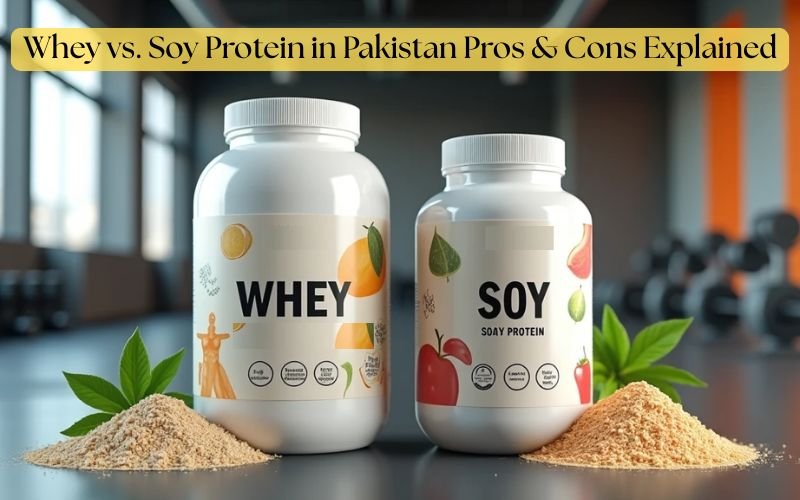


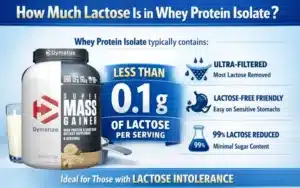

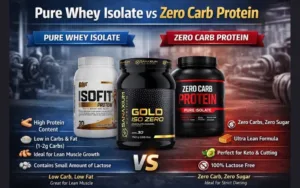
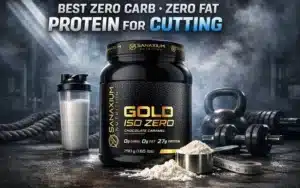

Add comment